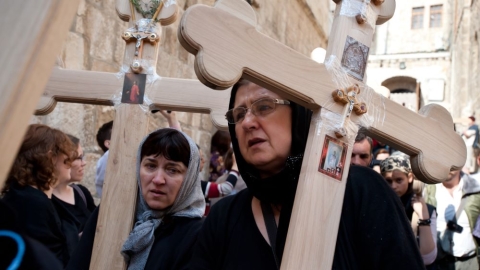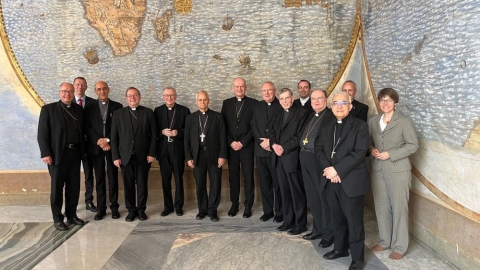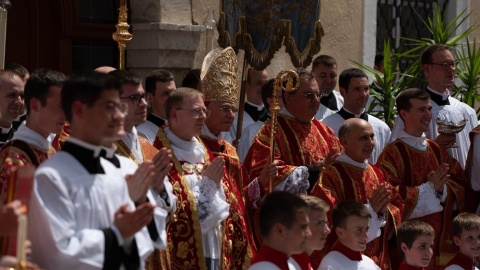World Synod: Differences Between French and German-Speaking Switzerland

Einsiedeln Abbey
The first phase of the global synodal process in Switzerland is over. In addition to full equal rights for women in the Church, believers have demanded an end to the clericalism that still exists. The Swiss Bishops' Conference issued a press release on this occasion.
On Monday, the “Swiss Synodal Assembly” met at Einsiedeln Abbey to collate from the dioceses their reports on the diocesan phase of the synodal process. The main concerns of the Swiss national synodal report were addressed, but it was also decided to “pursue the synodal being of the Church in Switzerland.”
Regional differences were highlighted: In the reflection on the quality of synodal work, the spiritual concerns of Latin Switzerland, focused more on attitude, were supplemented with the observations and advice of the more structure-oriented German-speaking Switzerland.”
The final synodal report is expected to be released this summer and sent to Rome along with the diocesan reports for the continental (fall 2022 – spring 2023) and global phase of the synodal process (fall 2023).
As part of the first phase of the global synodal process, the Swiss faithful spoke out in favor of equal rights for women and men in the Church.
During the diocesan phase, the “full participation of women” and “a more just inclusion of remarried divorcees or people from the LGBT spectrum” emerged as essential requirements, the Swiss Bishops' Conference announced on Tuesday.
On the other hand, the “widespread clericalism in some parts of the Church” was criticized. Synodality can only succeed if clerical attitudes are overcome and an understanding of priestly ministry is developed that favors a synodal church.
In other words, it is necessary to destroy priestly authority – which in the Church is by divine right – and copy the model of modern democracy: a leveling which distorts the Revelation brought by Christ, and which, indirectly, contests His authority over the Church. The Church must be what the faithful make of it, in defiance of divine law.
In an interview with the news site kath.ch (Wednesday), Markus Büchel , Bishop of St. Gallen, expressed confidence in the inclusion of the Swiss synodal report in the synod of bishops: “I think we are an important link in the world synod.”
On the topic of synodality, it is important to “develop sensitivity to differences and see that we can experience unity, even if everything is not uniform,” Büchel said. The question of women, for example, is posed “differently in Switzerland than in other countries and cultures.”
Issues specific to women are marked by Germanic Switzerland and the German-speaking region. On the other hand, it was from French-speaking Switzerland that the impetus came to state that “the whole synodal process must be understood as a spiritual process.”
This is an admission that German-speaking Switzerland is influenced by the powerful German Church and its Synodal Path, for which it is necessary to change the structures. On the other hand, French-speaking Switzerland remains suspicious of such an approach, and sticks to a more traditional approach to reforms in the Church, which must above all come from a change of heart and the conversion of each person.
(Sources : évêques.ch/katholisch.de/InfoCatolica – FSSPX.Actualités)
Illustration : Photo 42604284 © Findbook | Dreamstime.com





